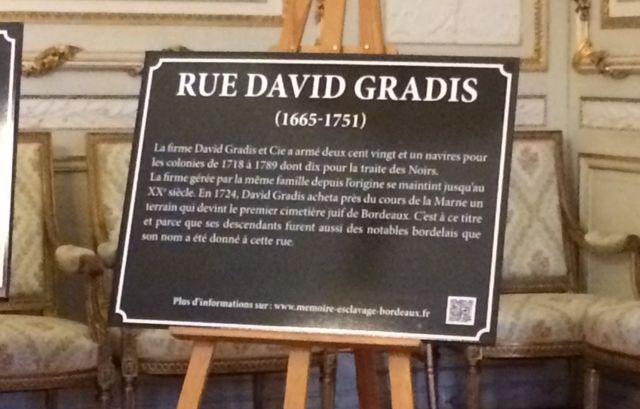The city of Bordeaux has long been criticized for not assuming the role it played during colonization, as the first colonial port and third slave port, between the 17th and 19th centuries. For around fifteen years, efforts have been made (rooms on slavery and trafficking in Aquitaine museum, plaque on the quays in 2006 etc). More recently, biographical street signs, shedding light on the role played by certain slave traders who gave their name to Bordeaux streets, were installed.
A “decolonization of public space”
After five plaques installed in 2020 (Gramont, Feger, Desse, Gradis, Mareilhac), five others will be installed in 2024, two of which will be inaugurated this Monday, at the corner of Cours Journu-Auber and Balguerie-Stuttenberg. “The decolonization of public space through the display of explanatory signs is one of the most effective ways of repairing the consequences of the crime against humanity that was the slave trade and of making the environment of our cities ethical,” estimates the Mémoires et Partages association, associated with the town hall in this enterprise.
The work of writing biographies continues and three new plaques will be inaugurated in 2024 with the names of Nairac, Ravezies and Bethmann.
2024-01-12 16:39:37
#streets #Bordeaux #continues #embrace #colonial


